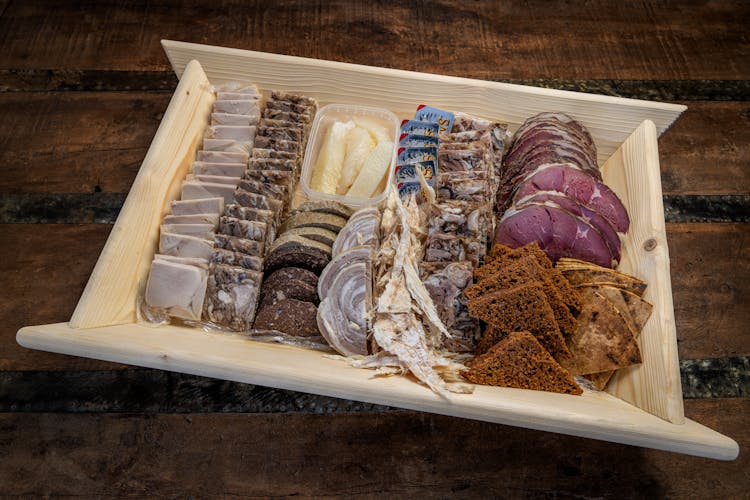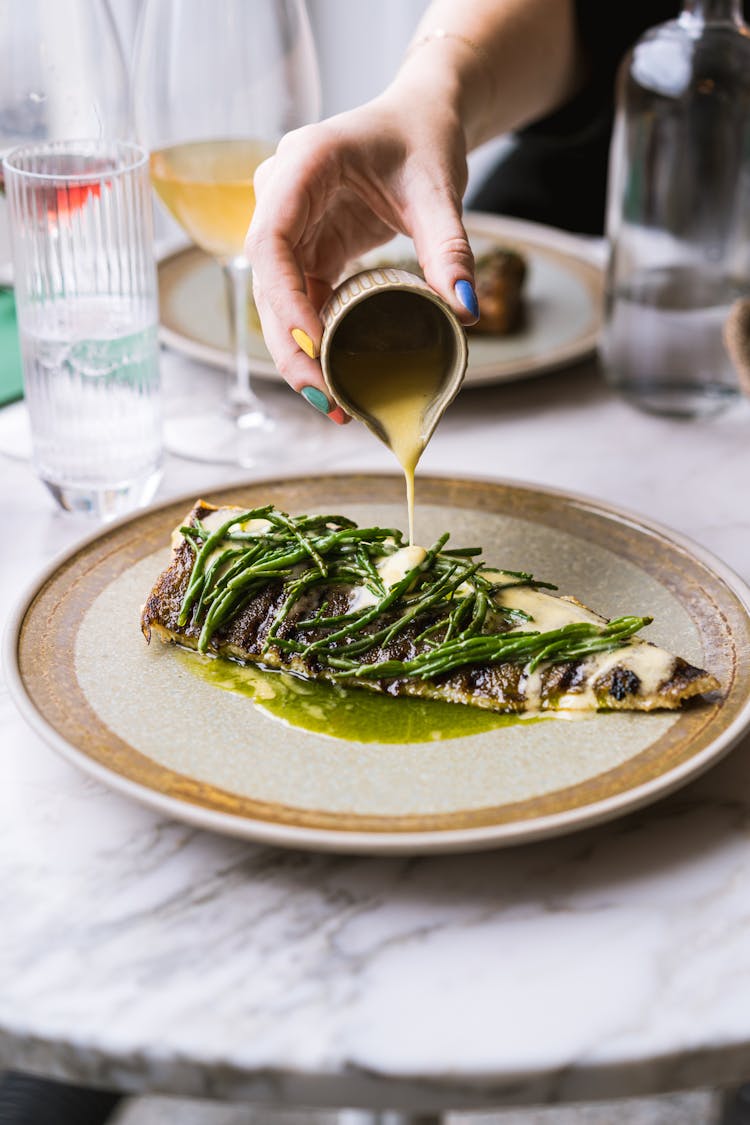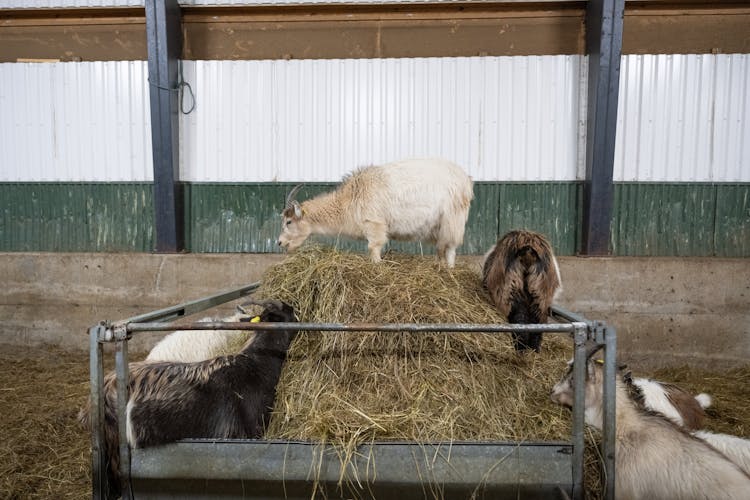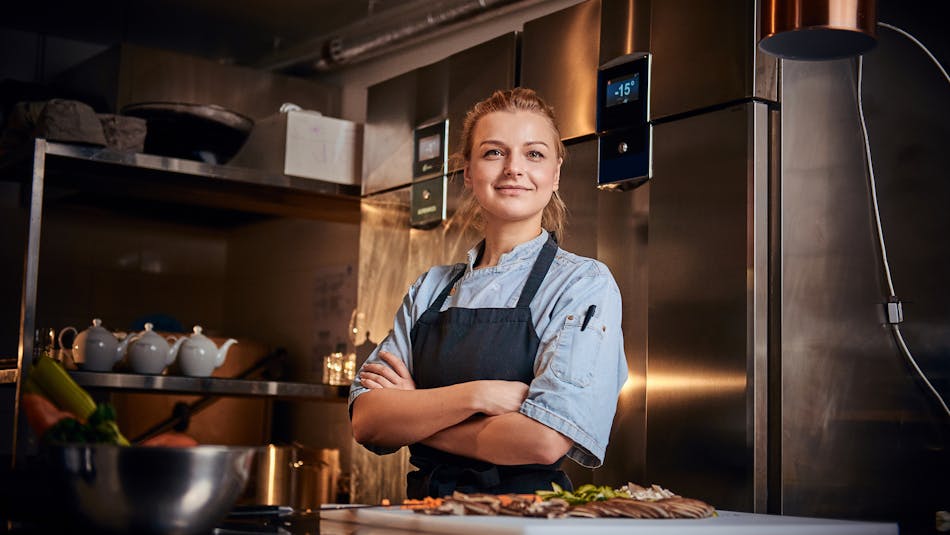
Sigrún Sigfúsdottir's culinary quest to remake classic Viking recipes with plant-based alternatives.
Craving vegan alternatives to traditional mouth-watering Icelandic foods? Vegan Vikings is an innovative start-up cooking up plant-based alternatives to Viking classics.
Not far from downtown Reykjavík is Vegan Búðin, the self-proclaimed sixth-largest vegan grocery store in the world. Vegan Búðin has identified a market niche in this fish and lamb-centric country and is happily filling grocery carts without animal-derived products. However, vegan examples of some of Iceland's traditional and culturally essential dishes are lacking on the shelves. Many Icelandic vegans seek faithful representations of their favorite sour, salted, and fermented foods served during the midwinter festival of þorrablót (sounds like thora-blot) in January—and the rest of the year.
Fortunately for Icelandic vegans, behind the apron, there is Sigrún Sigfúsdottir. She greets me in her small, well-organized test kitchen, where she works tirelessly with a small team and a whole lot of chemistry, constantly adjusting recipes and ingredients. Sigrún started Vegan Vikings in 2020 after applying for innovation funding in Iceland and for European Union grants that support the internal market for plant-based initiatives.
Sigrún has a welcoming smile and a wonderful laugh that makes me feel comfortable, despite the smells. While there are none of the traditional animal products here, the aromas of þorrablót are. Smoke, salt, and more than a hint of ammonia. I follow Sigrún around the kitchen, trying to keep up. The team seems to be in sync as they move and work around Sigrún's constant motion. While Sigrún is not a vegan, she understands the growing demand for plant-based substitutes for lundabaggi (pickled meat wrapped in offal), sviðasulta (sheep's head jam), and hákarl (fermented Greenlandic shark) is evolving and growing exponentially.
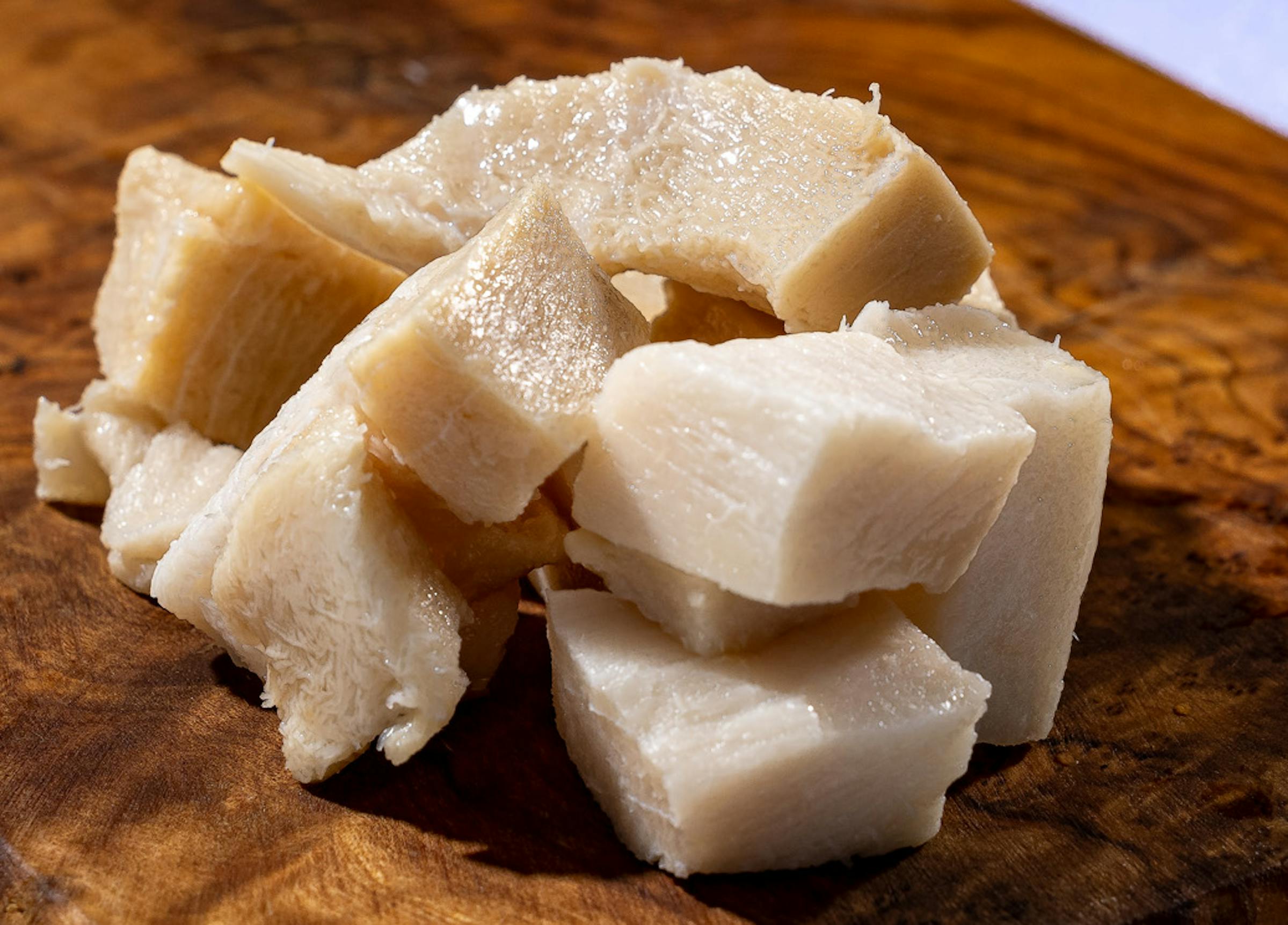
(Above) Ready for a shark bite? Icelandic vegans will soon have their own hákarl (fermented shark) when celebrating Þorrablót.
"You know what keeps me up at night?" she asks. Not used to Icelandic women asking me questions, I was caught off guard and thought for too long before she gave up and said, "Texture!" I nodded in agreement. "Color is no problem. We have made remarkable strides in taste and flavor. But consistency is the issue. I can't tell you how often we have made our version of sour rams' testicles, and we just can't get the texture right. We have tried soy and pea-based proteins—even kelp from East Iceland, but they all lack that tender testicle chewiness." I nodded in agreement. Sigrún straightened her apron, pulled a petri dish out of a small cooler, and offered me a toothpick. "Try our fermented shark alternative and tell me what you think. We have really nailed the ammonia punch that all Icelanders crave." Hesitantly, I pick up a piece, pinch my nose, and put it in my mouth. She is right. The ammonia hits me, and I swallow the tofu-like cube of shark as fast as I can. Sigrún looked at me inquisitively, and I realized I should have chewed more but just couldn't do it. "You're right." I say, "It is too crumbly and missing that usual tire-rubber-like bite," hoping she buys my comment.
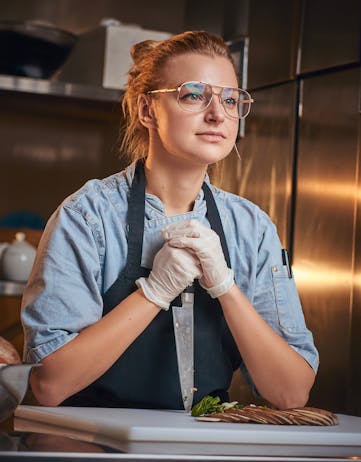

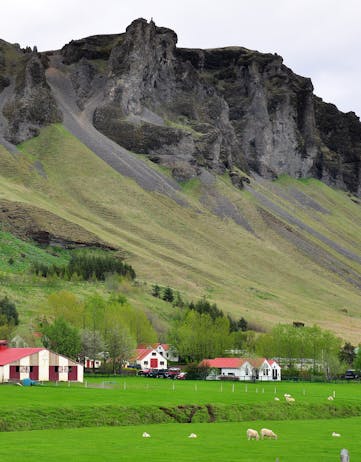
(L to R) Sigrún Sigfúsdottir of Vegan Vikings is all business—mostly, a sample of plant-based smoked Arctic char, the farm in Dalvík where Sigrún learned to prepare traditional aromatic Icelandic foods.
Sigrún is proud to have grown up on a farm in Dalvík, North Iceland. She shares that despite some tough times, she grew up in a land of plenty. Her family has worked the same farm for generations and made the most of everything they grew, hunted, fished, and harvested. Even though all types of imported food were available while growing up, this was not always the case in Dalvík. So her family adhered to many "old" foods for preserving and serving food, especially in the lean months of January and February when Icelanders celebrate Þorrablót based on the old Icelandic calendar. Let's just say, 1,000 years ago, this was not the time of year that choice cuts of meat were being served, and families were making do with whatever they had.
Sigrún is not a professional cook but an avid home chef with a master's degree in chemistry and a BA in French philosophy. She says, "Organic chemistry and Voltaire were tough to digest initially, but I grew to enjoy them." For Sigrún, Vegan Vikings is not about getting rich but expanding options for vegans and others seeking more sustainable and environmentally sourced food in Iceland—and internationally. "Nothing would make me happier than to see vegans enjoy the same dishes alongside their friends and family during Þorrablót celebrations. No more tofu roast! People should not feel left out of the delightful tastes and smells of Icelandic þorramatur. Ultimately, I want to create plant-based foods at Vegan Vikings that will be indistinguishable from those our ancestors ate as a last resort."
.jpeg?ixlib=gatsbyFP&auto=compress%2Cformat&fit=max&rect=0%2C0%2C2075%2C2075&w=90&h=90)
